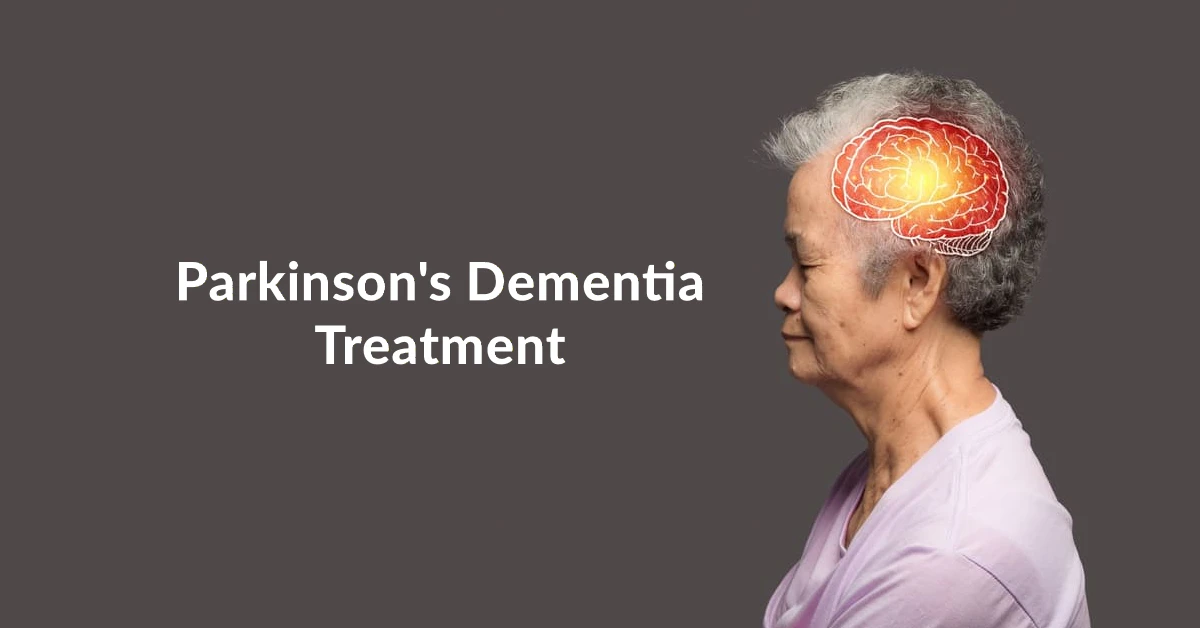Let’s cut to the chase. You’re here because you’ve heard whispers that something as simple as cough medicine might actually help with some of Parkinson’s “weirdest” symptoms. You’re not alone. Cognitive and neuropsychiatric issues like confusion, hallucinations, and even mild memory slips? They’re real messy, and people often don’t know where to start. So here’s the deal: there might be hope in a bottle of syrup—but it’s not as straightforward as you’d think. Let’s unpack this together.
First, the hard truth. Parkinson’s dementia doesn’t care if you’re ready or not. It sneaks in, sometimes years after diagnosis, and turns life upside down. But here’s the kicker: treatment isn’t one-size-fits-all. It’s a juggling act. And guess what? Some old-school remedies might have hidden superpowers. Keep reading—we’re diving deep (with science! with stories!) to help you weigh your options without losing your mind.
Cough Medicine: The Unlikely Ally in Alzheimer’s and Parkinson’s Brain Fog?
Let’s get real: nobody expects a trip to the medicine cabinet to feel like an expedition. But here’s the twist. For decades, dextromethorphan—a common ingredient in cough medication—has quietly shushed kids’ coughs. Now, scientists are raising their eyebrows. Turns out, this humble compound might do more than silence a dry throat. Cue the plotline: big pharmaceutical ingredients hiding in plain sight, waiting to do star roles in neurodegenerative dramas.
Think of it like this: imagine your brain cells at a party. In Parkinson’s, the guests (microglia—the brain’s cleanup crew) start a mosh pit, turning inflammation into chaos. Dextromethorphan? It’s the bouncer quietly calming things down. Pretty sick, right? Researchers from prestigious places like Purdue and Arizona Health Sciences noticed that rats with Parkinson’s symptoms improved after doses of this ingredient—before the fog turned into full-blown dementia. Cool? Yeah. But is it YOUR solution yet? Not so fast…
Wait—How Is Cough Medicine Connected to Dementia?
Hold up. When neuroscientist Meredith Hay, PhD, developed the protein PNA5 (hoomph), she wasn’t thinking about coughs. But dextromethorphan shares a similar dance floor with this protein—inflammation control. In Parkinson’s disease, the immune system doesn’t just mop up injuries. It goes radical, worsening cognitive damage. So when a paper in MDPI mentioned that PNA5 shifted inflammation from “killer” to “peacekeeper” in animal models, people in white coats perked up. Main takeaway? Maybe some of your usual meds are stealth protectors. Maybe. Just maybe.
Key example: that 2024 University of Arizona study (shoutout to Dr. Lalitha Madhavan and her team!) found that inflammation gone feral in Parkinson’s brains? PNA5 chilled it out. Dextromethorphan isn’t PNA5—but science is saying “mild cousins can do the same work.” Earlier research gave it a side-eye for potential neuroprotection? Check. Ongoing clinical trials? TBD for 2025–2026. So… medical history’s recycle bin might have hidden a future treatment. Mind blown.
Small-Scale Findings: Cough Medicine’s Brain-Positive Sig Graphic
| Study | Treatment | Key Finding |
|---|---|---|
| Arizona Health Sciences (2024) | PNA5 (protein on steroids) | Slowed cognitive decline in mice. Inflamed microglia? Defeated. |
| Purdue Neuro Lab (2023) | Dextromethorphan | Limited but intriguing evidence of neuroprotection. Rats with Parkinson’s symptoms showed improved focus. |
Rivastigmine, Quetiapine, and the PD Dementia Playbook
Hold up—the cough medicine angle is exciting, but Parkinson’s isn’t a game of “what if.” Let’s pivot to today’s game plan. What’s currently certified? Well, if you’re asking “Parkinson’s dementia treatment—what’s real?”, your doctor is likely to name two approved medications.
First: Rivastigmine. You might recognize this as the golden child for PD dementia management. A cholinesterase inhibitor—think of it as a language translator between brain cells. Studies corroborate it helps with memory lapses and delusions for some folks. Drawback? Skin reactions with the patch or stomach storms if taken orally. But hey, at least it’s got an FDA green light.
Antipsychotics in PD: Clozapine’s Tightrope Walk
Next: Clozapine. This is the ultimate weapon for some hallucinations, paranoia, and aggressive moods. But here’s the catch. Clozapine needs weekly blood checks—because it can significantly disrupt your immune system. For many patients or caregivers, that’s a bridge too far. They go, “man, I’m just trying to keep Mom from fighting the TV… not trade a confused mind for blood work trauma.”
So neurologists often try quetiapine first—the lazier, less-scary cousin. Doesn’t need blood tests. Keeps tremors under control. Drawback? It’s off-label, so you’ll hear “evidence isn’t strong… yet.” Mri… muddy. What’s not muddy? That a 2014 study in PMC still chides us for over-relying on typical antipsychotics. So… ultrasound the rigidity in your doctor’s approach before compliance becomes a trap.
Quick Compare: 3 Drugs You’ll Hear About
| Drug | Approved for PD Dementia | Key Risk | Care Partner Feedback |
|---|---|---|---|
| Rivastigmine | ✅ | Skin irritation, GI issues | “Mom started sleeping better. But the patches? They made her sweaty.” |
| Clozapine | Partially (only for psychosis) | Requires weekly blood work | “It helped her stop seeing monsters… but the downside was heavy.” |
| Quetiapine | ❌ | Sedation, poor blood sugar control | “My dad got quieter. Less yelling… but took naps all day.” |
Cognitive Therapy: Beyond the Pill Bottle
Let’s cool our jets for a second. France more medication racism—what else is in the toolbox? Because if you’re dealing with Parkinson’s dementia, you’re not looking for one pill to save you. You’re looking for a sofa with options. And therapists—yes, humans with degrees—are key.
Here’s a thing people forget: PD shakes more than motor neurons. It rattles routines. So exposure to structured speech therapy? It’s not just for stuttering. In Arizona, they were trialing “daily brain workouts” for PNA5— but for most of us? Start with a parkinsonian-focused speech pathologist. They teach how to rewind cognitive skills you didn’t realize were fraying. Ever tried drawing or talking your way through confusion? Turns out, creativity is a hell of a stabilizer.
Teach Me How to Help—Without Overwhelming Myself
Feeling dragged down by the caregiving fog? Not shocking. Managing hallucinations can be like trying to debug a prankster. Your loved one might swear there’s a hired dog trimming their nails, but you’re staring at an empty room. So how to help without dropping your own sanity? Non-drug strategies sometimes trump chemicals.
For starters, apps like BrainMeore HealthyNudge are being used by caregivers to manage meds and track mood sway—which mental health practitioners are endorsing. And old-school habits? Lighting adjustments. Stable routines. Physical therapy to keep balance strong, because if the body is annoyed, the mind follows.
Popular Non-Med Solutions
- Lighting upgrades: Turns out too many shadows = visual hell for people with PDD. Soft white lights reduce hallucinations.
PNA5: Is This the Headline You’ve Been Praying For?
I’ve got to get hypothetical here. Because PNA5 isn’t on shelves yet—but in the playground of 2025 research, it’s the sandcastle everyone’s running to. When brain cells throw a tantrum (that’s parkinson’s), their immune cells (microglia) go full Hulk. They don’t clean up—they just slam negativity around.
Now the Arizona crew, led by Dr. Madhava, injected PNA5 into this mess. It’s not superhero-level serums, but their mice? They could run the maze again. Remember names. It’s like the protein whispered to the brain—”shut down chaos.” The big hope? That PNA5 arrives as a preventative tool before dementia plows in. But humans ain’t mice. So what’s next in the saga? Trials probably 2025, but cross your fingers.
Could PNA5 Work with My Current PD Medications?
Short version: yes. Longer version: maybe. If approved, PNA5 could glide into routines where people already take levodopa or dopamine agonists. No bad collisions listed in 2024 yet, but nobody’s decided the a to z of dosage.
And here’s the courage play: even if you’re not a clinical trial candidate TODAY… the research might one day reshape how PD is approached. That’s the researchers’ motive—foundational shift, not homeopathy fan fiction.
Protein Reveals Promise: Observed Outcomes
Based on murine data from a study summarized in NHS coverage:
- Improved memory tasks post-PNA5 injection
- Reversal of microglial hyperinflammatory responses
- Survival rate of brain cells increased in treated group
Decision Time: Your Right to Ask “What Else Should I Know?”
You’re not dumb if you’re wondering, “so… should I sneak off to Walgreens and push behind-the-counter queries?” Nope, don’t do that. But a frank talk with your doc? Do it. Ask. Push for answers that align with both your symptoms and the 2025 treatment sandbox. Because that’s what makes content—and life—real: good questions.
If you’re not ready to go surgical yet or dive into trial drugs, here’s your cheat sheet. Three points to bring up next time you see your neurologist or advanced care nurse:
Candidates for Trial Drugs: Are You In the Pool?
You’ve got to ask about trial access. Dextromethorphan looks promising in low-dose fashion—but it’s not advocated for long-term use. PNA5, though, is all abstraction fruit now. To participate, you’ll need a research-affiliated clinic. The hunt for recruiting centers? It’s legit.
But what if—ya girl associative thinking here—what if you’re not in a trial? Maybe Rivastigmine + an adjusted sleep strategy cuts the mustard. Or maybe your doc realizes that drug interactions—not dementia alone—are exacerbating confusion. The best move? Ask twice. Get curious until you feel accounted for.
When to Say “Nope!” to OTC
Let’s not do this. A “natural” tincture for cognitive fog > Nothing. Because delusiono isn’t a parkinson thing—it’s a brain thing. And treating brain fog with hints scribbled on social media? That’s how things escalate. So here’s a lesson:
“After Dad OD-ed on elderberry gummies thinking they’d polish his thinking—he hallucinated more. Now we just stick to “real talk” with real docs.”
Edit: don’t be my amygdala-brain dad. Noted.
You’re Not a Diagnosis—You’re a Human. And That’s Important.
One final head-wise note. A health article about Parkinson’s dementia shouldn’t sound like a court recitation. It should feel like a shoulder-to-shoulder convo. Because real patients don’t live in lab equipment—they live day by day, trying to keep their reins on life the best they can.
If you’ve read this far, you’ve earned your stripes. Investing in understanding treatment means you’re betting on your or your loved one’s power. So take a beat. Share your takeaways. Wonder out loud. Because progress—hell yeah—doesn’t have to live in a single institution. It’s woven into you showing up, reading and rereading, and asking: “What if?” and “What now?” without shame or intimidation.
Next Step?
If your neurologist isn’t clued into dextromethorphan or PNA5? Google’s search bar is your ally. But remember the Parkinson’s Foundation advises: always pay attention to who’s literally writing those research headlines. The best leads come from longterm institutions who’ve already crafted COPS in medicine.
For now, stick to what works, question what hasn’t, and—if hormones allow—watch dextromethorphan’s research arc from sidelines to papers. Let’s move from confusion to support, together.


















Leave a Reply
You must be logged in to post a comment.